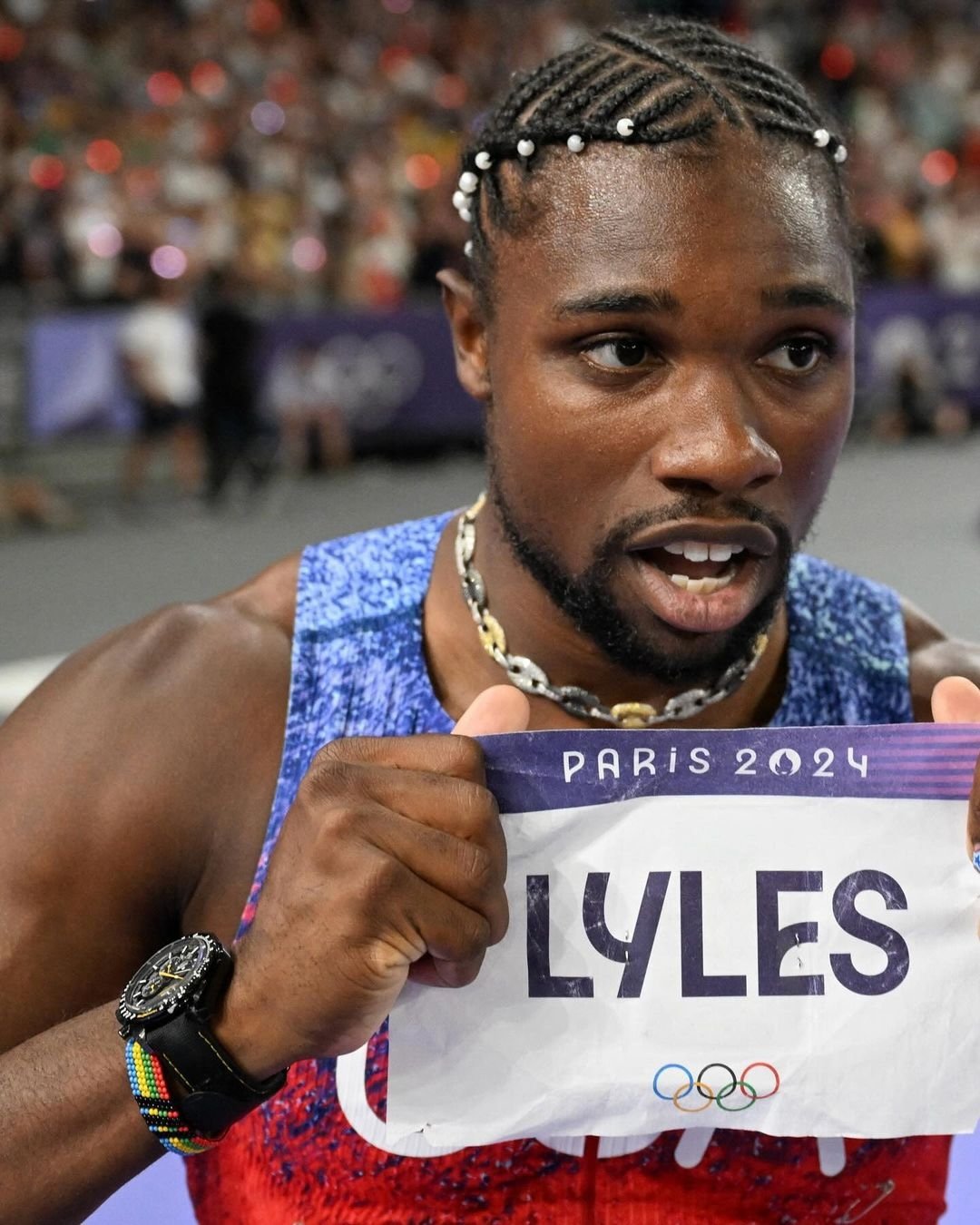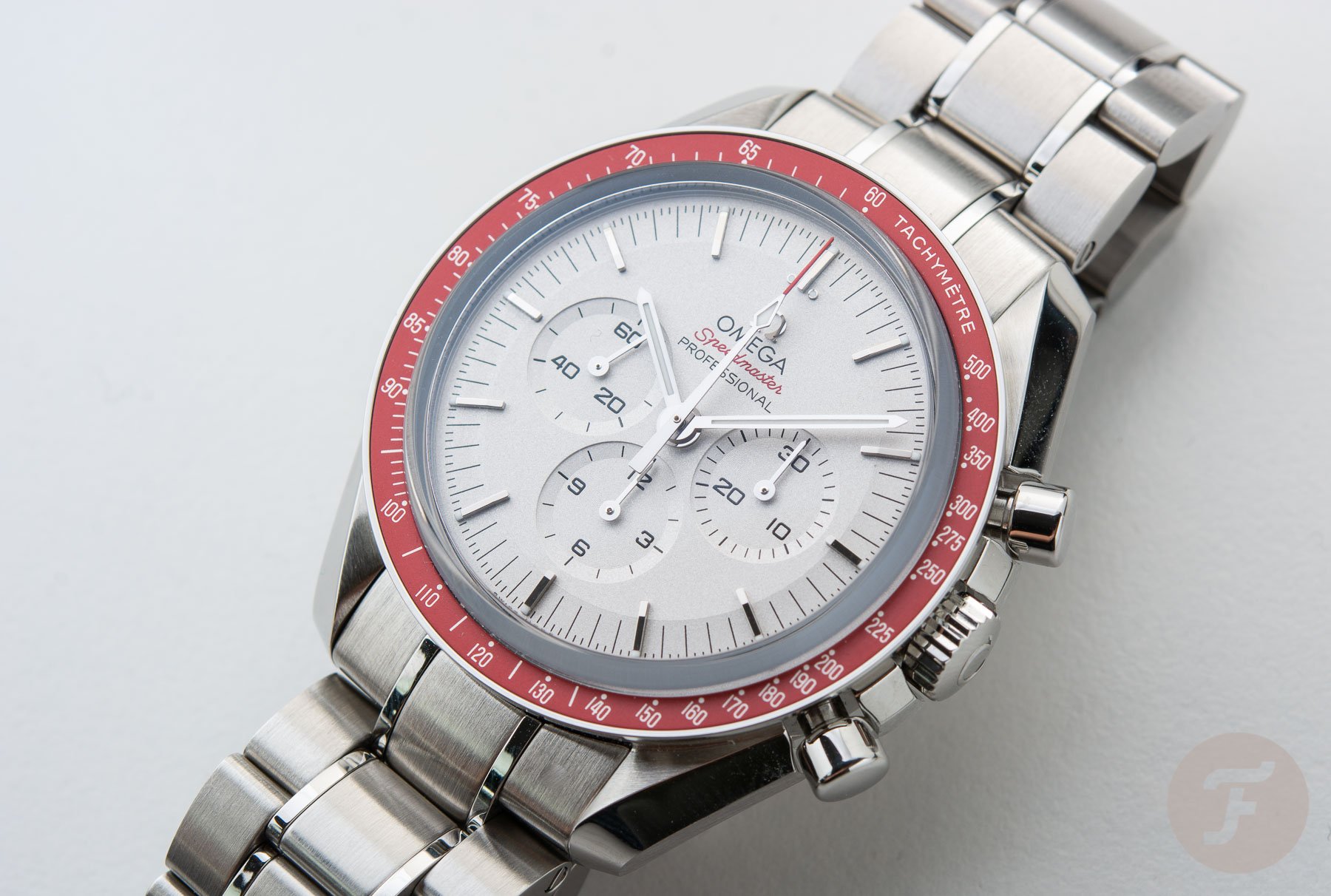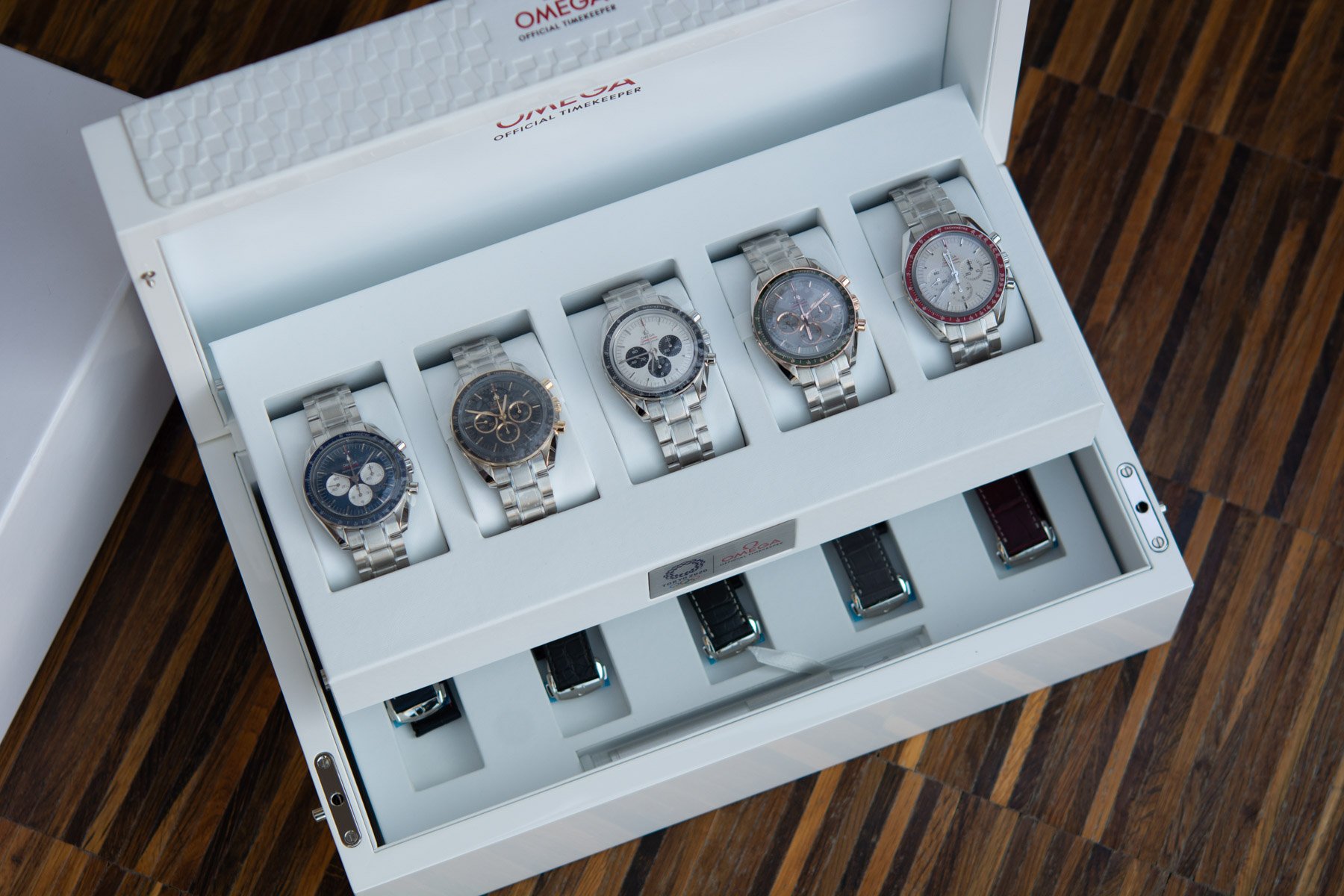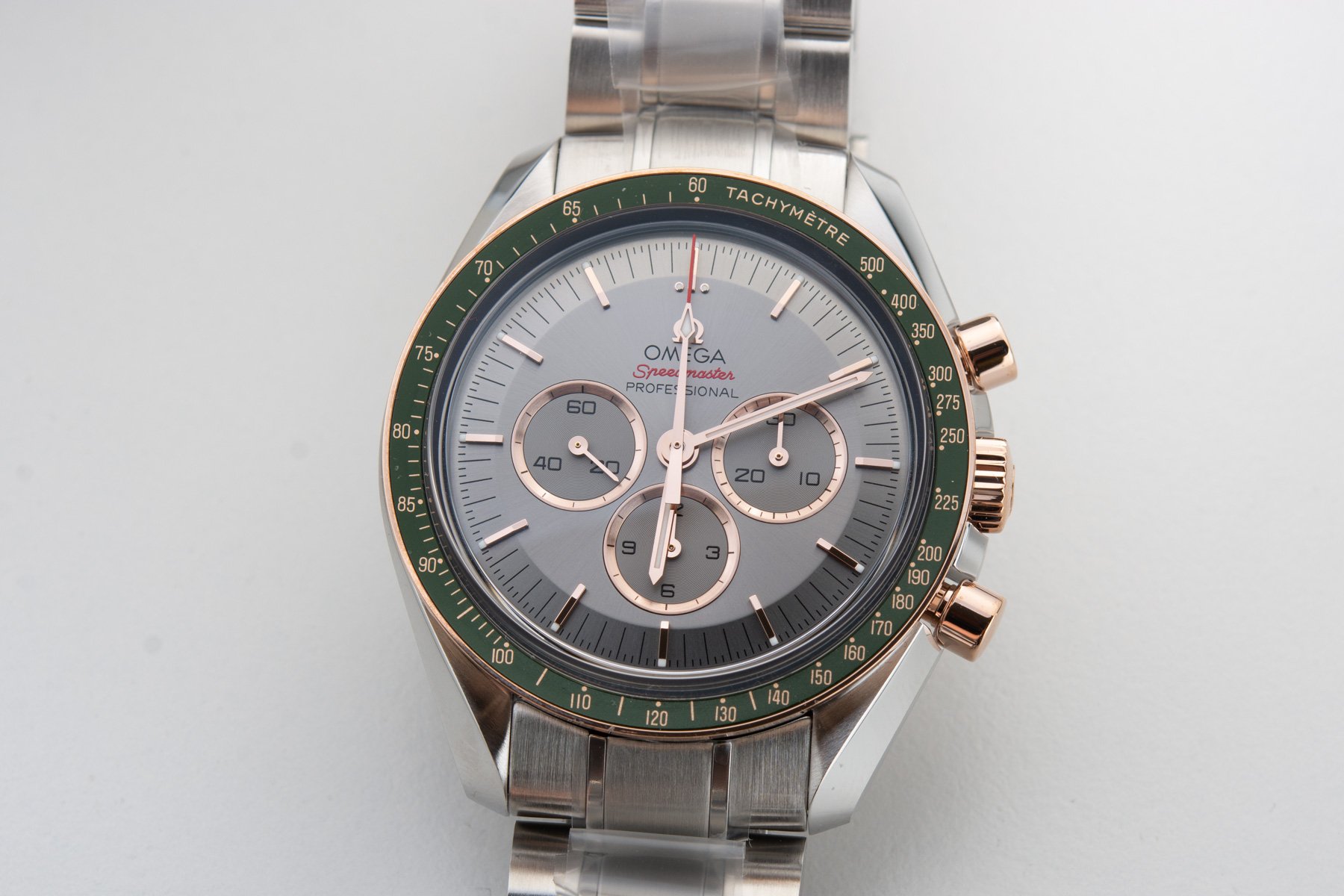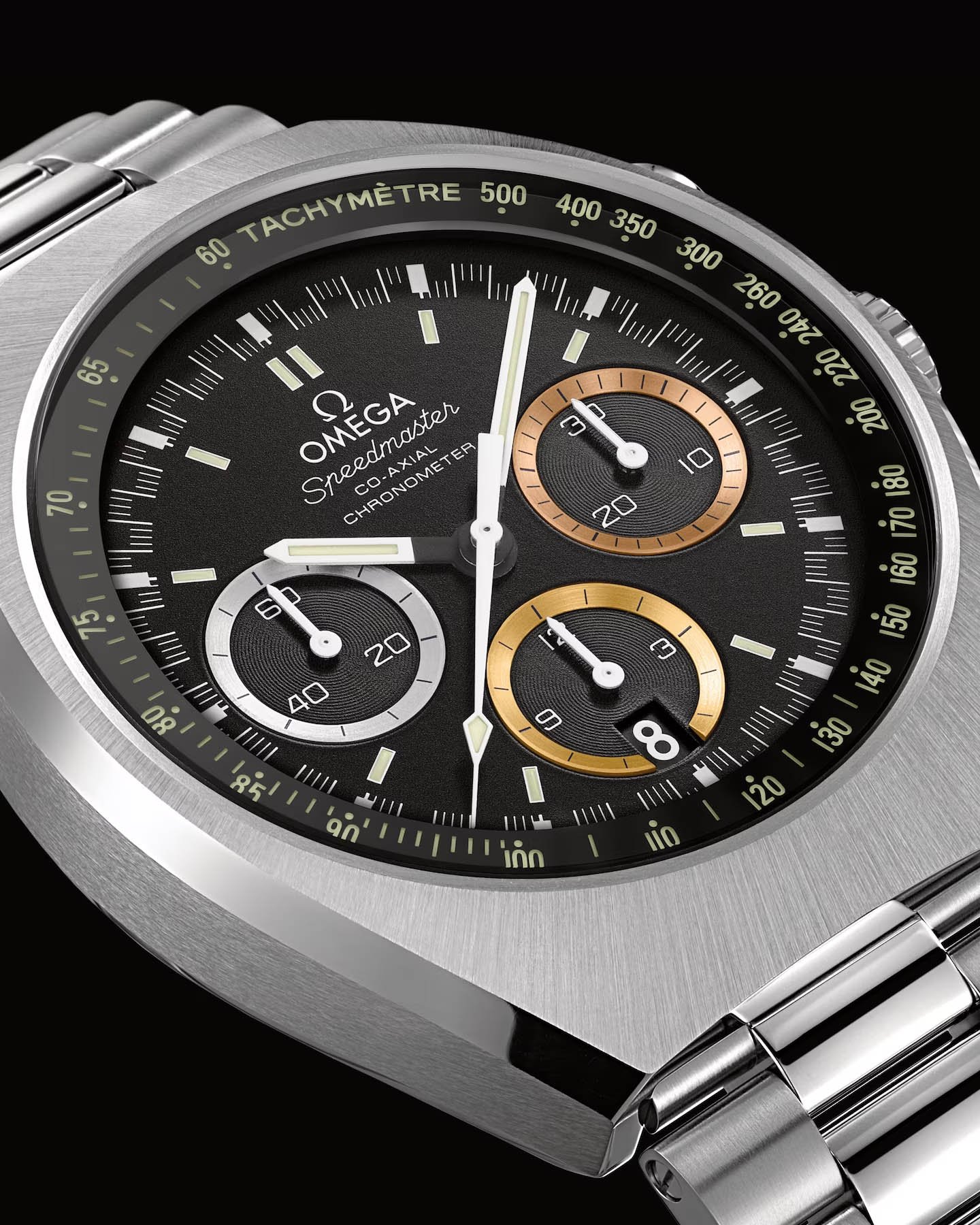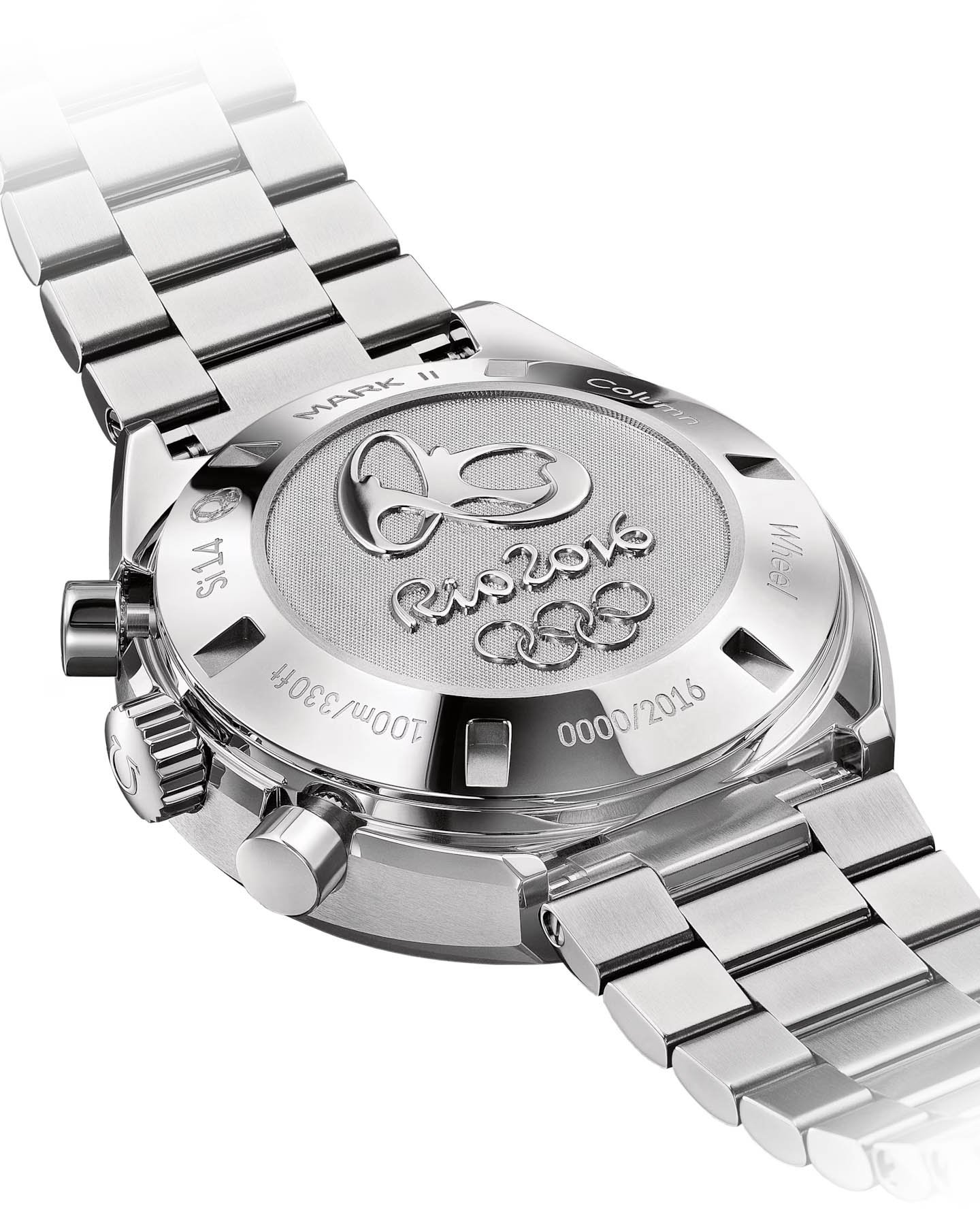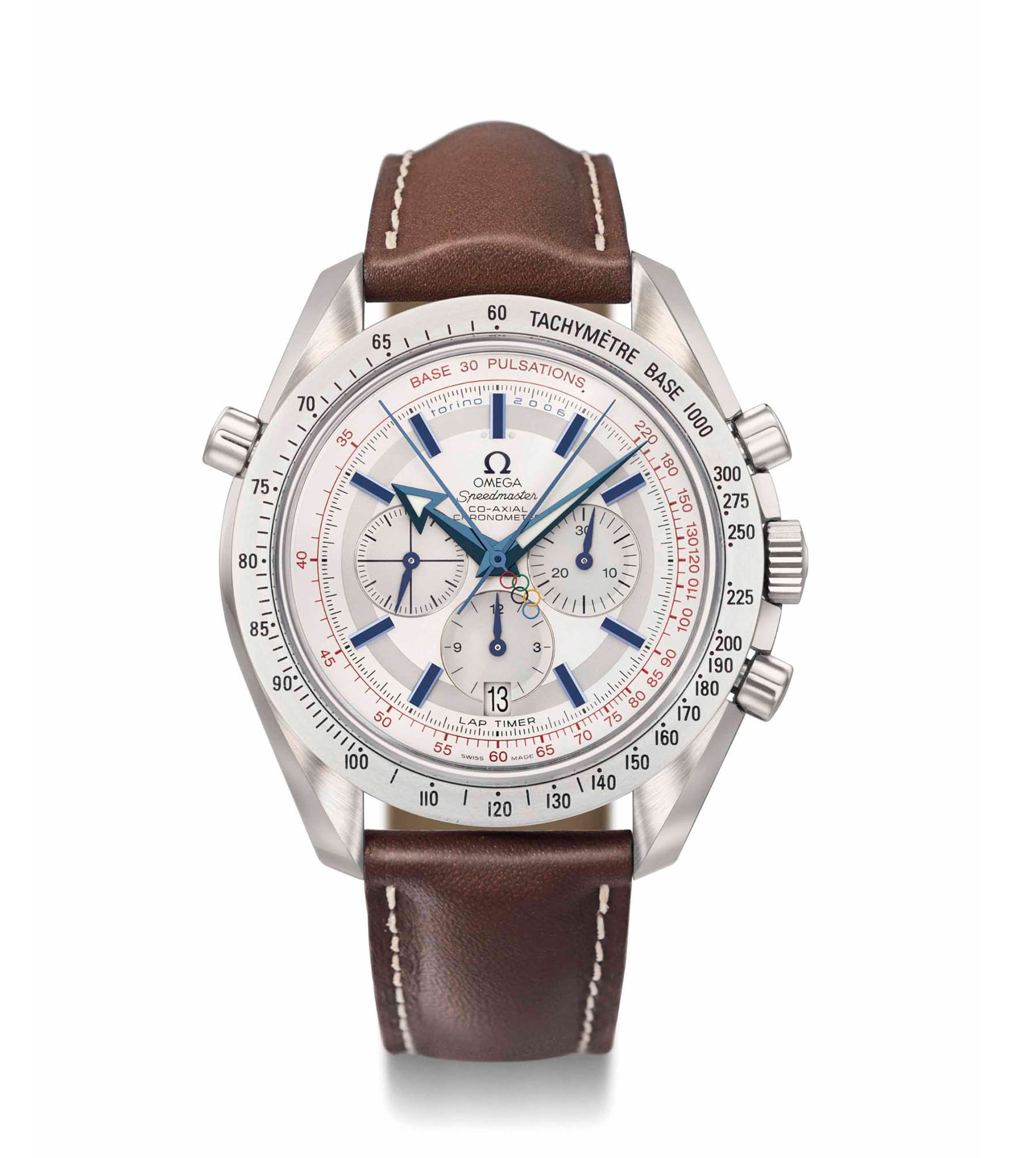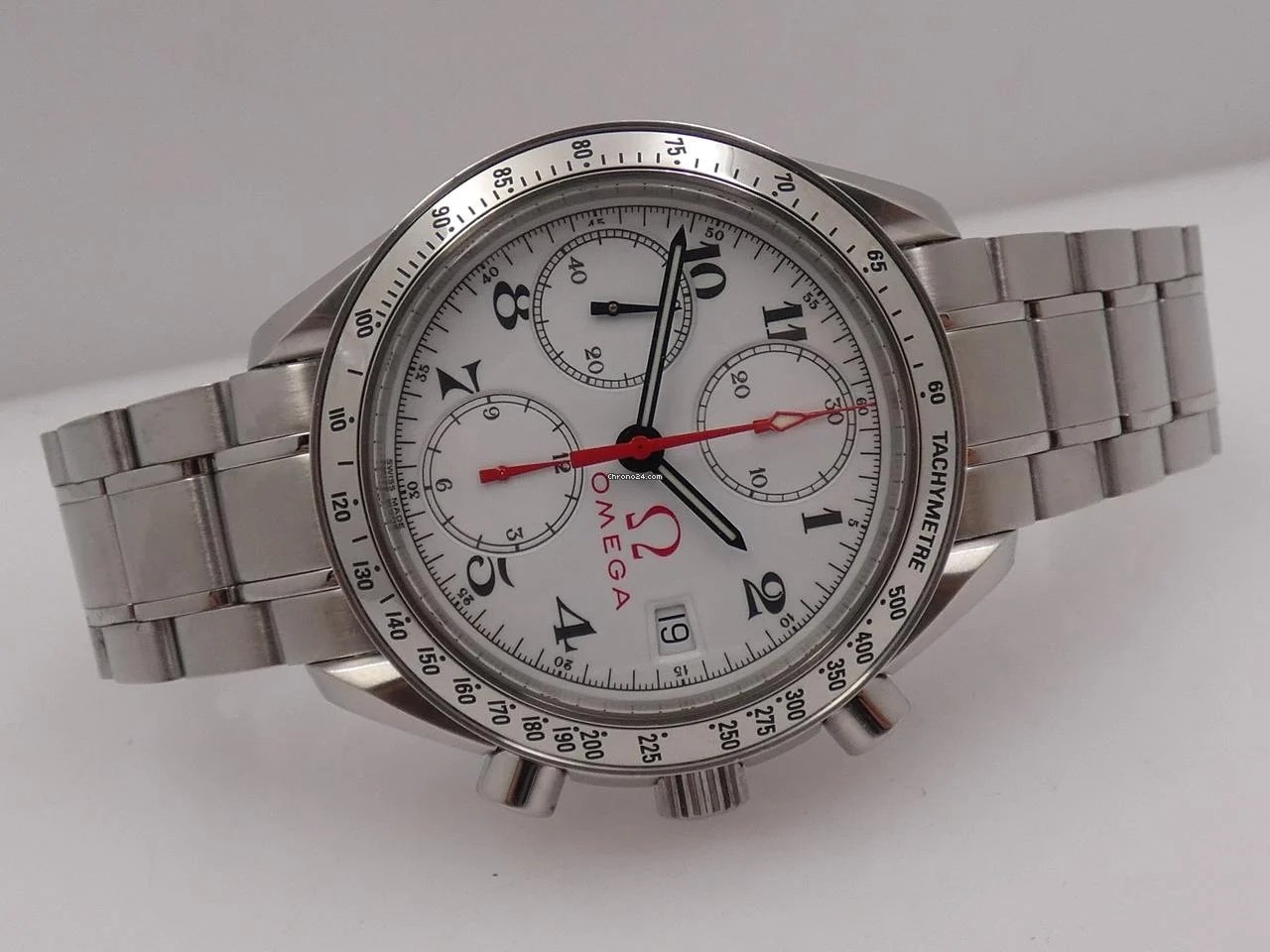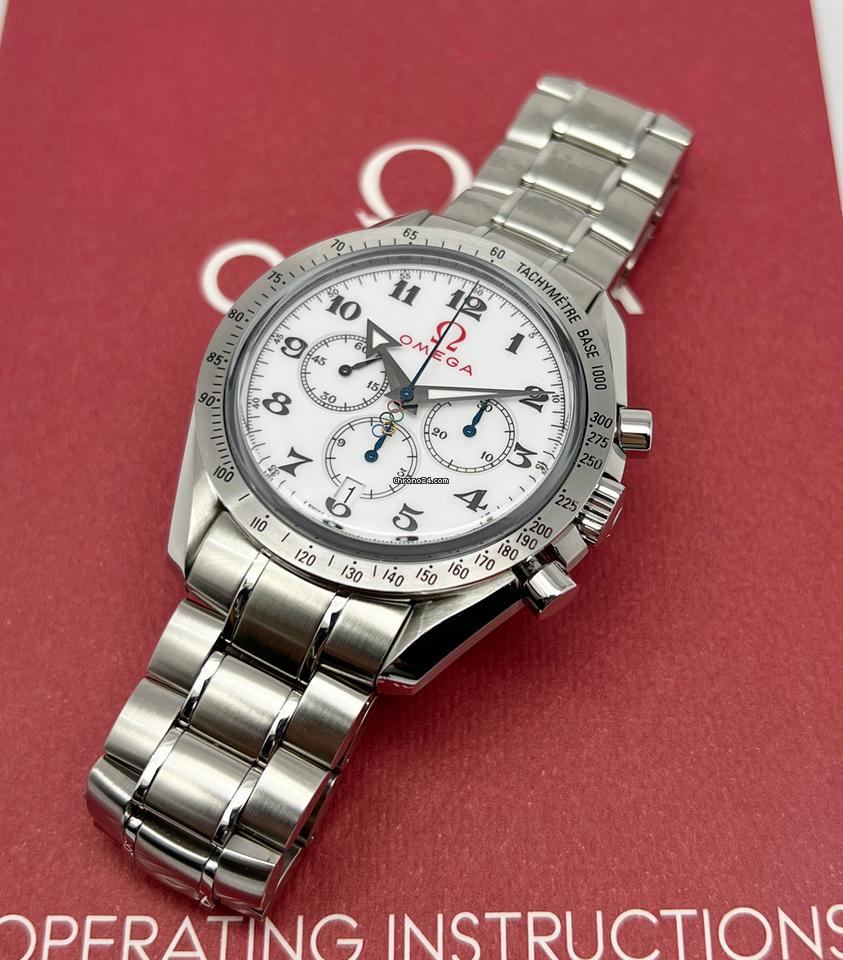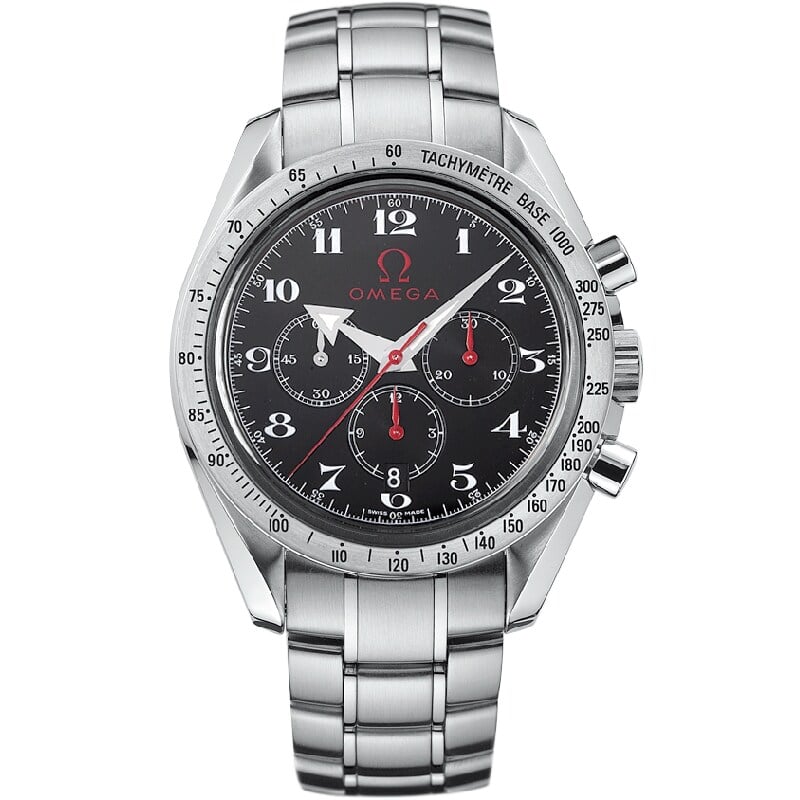Looking Back At All The Omega Speedmaster Olympic Games Special Editions
One of the most anticipated track and field events closed up the first week of the Paris 2024 Olympic Games. I’m talking, of course, about the men’s 100-meter finals. Though more than a few exciting gold-medal events occur throughout the two weeks, few get as much attention as this one. Thanks, perhaps, to the once-in-a-generation athlete who held on to the title for over sixteen years and captivated the masses with his inescapable charisma. Usain Bolt is still the world record holder, but a new generation has since taken his place. This past Sunday, the world tuned in and held its breath for just over nine seconds after the starting gun. But as the runners crossed the line, there was no clear winner: It was a photo finish that would decide one of the closest finishes in Olympic history.
Even if you have only paid a little attention to the ongoing Olympic Games, you’ve probably seen or heard about Noah Lyles’ impressive win in the 100-meter finals. It was a win with an incredibly narrow margin. It was so narrow that Omega’s photo-finish equipment played a key role in clearing up what to the naked eye was a blur of bodies running across the line. We explained how exactly this system works here. The difference between gold and silver (Kishane Thompson) came down to just five-thousandths of a second. On Lyles’ wrist was a Speedmaster Dark Side of the Moon Apollo 8, by the way.
Omega and the Speedmaster Olympic Games Editions
As you can read, we are entirely in the spirit of the Olympic Games Paris 2024. With Omega as the official timekeeper (not to be confused with being a sponsor), I thought it would be interesting to have an overview of all special or limited edition Speedmasters the brand has produced for the Olympic Games.
Of course, this year’s Olympic Games editions consist of the Seamaster 300M, the CK859, and the Speedmaster Chronoscope—three watches released over one year for the Paris 2024 edition. We covered these three recently here on Fratello, but today is Tuesday, so let’s take a look at some of the special edition Speedmasters released for Olympic occasions.
Tokyo 2020
I vividly recall an Omega Speedmaster Olympic Games edition introduced spontaneously in 2018 for the Games initially planned for Tokyo in 2020. I remember receiving a message from one of our readers that Omega had just shown five new Speedmaster Professional models for the Japanese market. Each of them featured one color representing one of the Olympic rings. At the time, sitting next to the pool in Spain during a holiday, I shot our contact at Omega a note, asking what the fuss was all about.
I quickly wrote an article introducing these five new models, made available separately or in a box set of five (exclusively for the Japanese market). A friend managed to get his hands on a set of all five in Japan, and I went for the model with the red bezel, aptly nick-named the “Rising Sun” by my colleague Michael Stockton. It was strange that Omega thought they could do a country-specific release without waking up the rest of the (Speedmaster) world.
The Omega Speedmaster Tokyo 2020 was essentially based on models that were released in the past in some “Professional” references. Still, some colors also came from the larger, bi-compax models, like the “Rising Sun”. Aside from the color schemes, updated bracelet (with extension system in the clasp), and special white Olympic Games box, the watch was based on the then-standard Moonwatch with sapphire crystal. Inside they featured a chronograph caliber 1861, the famous hand-wound movement that Omega used for a long time in the Speedmaster Professional. The watches were limited to 2,020 pieces each, and the full set was limited to just 55 units.
Now long discontinued, these Tokyo 2020 editions can still be found on the pre-owned market for €6,000 and up for separate editions, depending on their condition.
Rio 2016
In my opinion, a Speedmaster that is a bit of a hidden gem is the modern (2014) Speedmaster Mark II. And in 2016, Omega created a special version for the Olympic Games Rio 2016. This Speedmaster, a re-edition of the 1969 Mark II models, was updated with a new (automatic) movement and slight design tweaks in 2014. For the Rio Games, this commemorative version with special subdials was launched. Each subdial’s edge commemorates the gold, silver, and bronze medals awarded to the top athletes competing in a given discipline in the Olympic Games. The rings are actually made of 18kt gold, 925 silver, or bronze, respectively. Limited to 2,016 pieces, the Rio 2016 is a watch that not everyone remembers. While the regular Speedmaster Mark II re-edition already flies under the radar (and has since been discontinued), the Rio 2016 is undoubtedly a brilliant Speedmaster that not everyone knows.
Omega’s caliber 3330 powers the Mark II Rio 2016 edition, reference 522.10.43.50.01.00. It’s a Co-Axial chronometer (and chronograph, of course) with a column-wheel mechanism and a 52-hour power reserve. What’s also interesting about the new Mark II (Rio 2016) model is its 100-meter water resistance rating. This is a feature that many would love to see in the standard Speedmaster Professional. The Speedmaster Mark II Rio 2016 is slightly larger than the Moonwatch, with its 42.4mm case diameter. It has a thickness of 14.9mm and a lug-to-lug of 46.2mm. These watches have been discontinued for some time, but the Speedmaster Mark II Rio 2016, depending on its condition, can be found for roughly €4,600 and €6,000.

Speedmaster Torino 2006. Image via VintageMasters.eu
Torino 2006
Way before the high demand for Speedmaster watches, Omega introduced a special edition for the Torino 2006 Winter Olympic Games. It’s based on the famous “Reduced” model, but it features a special “Pulsations” scale on the white dial, the Olympic Rings on the counterpoise of the chronograph second hand, and Torino 2006 printed above the lower subdial.

Image by VintageMasters.eu
On the case back, there’s the engraving of the Olympic Games rings with the word “Official Timekeeper” and the number of the watch. You’ve guessed it already: this edition was limited to 2006 pieces. This reference 3538.20 houses caliber 3220, based on the ETA 2892-A2 (or Omega caliber 1120), with an add-on chronograph module. The 18mm bracelet on this watch looks somewhat similar to today’s Speedmaster Professional bracelet but with a polished center link. You can find these watches between €3,000 and €4,000 on the pre-owned market.
Another one for Torino
The Speedmaster Broad Arrow Rattrapante Torino 2006 is much rarer, with only 26 pieces ever made. It’s a large watch at 44.5mm but houses caliber 3612 with a rattrapante (split-seconds) complication. You operate this feature with the extra pusher at 10 o’clock. It’s a self-winding movement based on a Piguet caliber 1286 (now part of Blancpain). Also, here we find the pulsations scale on the dial and the Olympic rings on the short end of the chronograph second hand.
The blued broad arrow hands and hour indexes create some color contrast on the crisp white dial. Omega opted for red and black printing for the scales and dial text. In the subdial at 6 o’clock, there’s also a date aperture. You might say it has a rather cluttered dial, but I think this watch looks fantastic. Its diameter of 44.5mm does make it roomy enough to house all the information on the dial. These are rare, and where it fetched less than $7,000 at a Christie’s auction in 2015, they can now be found for just over €20,000.
Olympic Collection
Interestingly enough, Omega also introduced Speedmasters under its “Olympic Collection.” These watches do not belong to a specific Olympic Games year but celebrate the fact that Omega has been the official timekeeper since 1932. One example is the Speedmaster reference 3513.20 “Los Angeles 1932.” These were produced around 2001 and can be found pre-owned for very friendly prices.
Another notable model from the Olympic Collection is the Speedmaster Broad Arrow with reference 321.10.42.50.04.001. This 42-mm Broad Arrow model has a porcelain-like white dial, Arabic numerals, and a vintage Omega logo. It also features the Olympic rings on the chronograph seconds hand’s counterpoise. Below is another variation (Speedmaster Broad Arrow reference 3556.50.00) that was part of the Olympic Collection. They are powered by an F. Piguet-based movement (Omega caliber 3303) and can be found for just below €3,000 in the pre-owned market.
What do you think about the Speedmaster Olympic Games editions? Do you have any favorites? Let me know in the comments.

